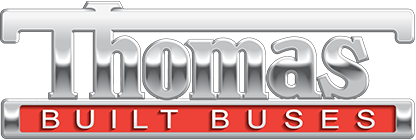
A company with a rich history and a bright future.
Our History
The history of Thomas Built Buses reads much like the history of modern mass transportation. It begins in 1916 in High Point, North Carolina. Economic hard times created by World War I forced the closing of Southern Car Works, a major streetcar manufacturer based in the city. Like many, Canadian-born car designer Perley A. Thomas, chief engineer for the company, lost his job. However, opportunity found Thomas a few months later when Southern Public Utilities Company asked him to consider putting together a crew to renovate several streetcars he had designed for his former employer.
Within weeks, Perley Thomas had assembled many of his former coworkers, purchased a building in downtown High Point and opened Perley A. Thomas Car Works. Thomas’ reputation in the industry opened doors nationwide, and within a few years, Thomas-built streetcars were carrying passengers in many of North America’s largest cities.
By the late 1930s, cars and buses were beginning to make streetcar transportation obsolete. Perley A. Thomas Car Works adapted, and in 1936 ceased production of streetcars and launched a new product: school buses. In the early ‘40s, Thomas continued to contribute his design skills to the company as he gradually turned over day-to-day operations to his children. He actively served as a design consultant to the business until his death in 1958 at the age of 84.
Thomas’s children and grandchildren led the company forward, and by the early 1960s, Thomas Car Works had built a national reputation as a school bus manufacturer. In 1972, the company changed its name to Thomas Built Buses to better reflect the core of its business. In 1977, Thomas introduced its first bus chassis and began producing the popular Saf-T-Liner® transit-style bus. Thomas expanded to manufacture a smaller school bus, the Minotour®, and in the 1980s, entered the commercial transit market.
In 1998, Thomas Built Buses became a wholly owned subsidiary of Freightliner LLC, a Daimler company. The strength of Freightliner, now known as Daimler Truck North America, has helped Thomas Built Buses grow and adapt to changes in the transportation industry.
In 2004, Thomas Built Buses added a 275,000-square-foot, state-of-the-art plant in High Point to manufacture the Saf-T-Liner® C2. The C2 was designed from the ground up for superior durability, reliability and safety. Due to rapid adoption of the Saf-T-Liner C2 by the market, the company retired the FS-65 conventional bus, manufacturing the last one in November of 2006.
Leveraging the success of the C2 and responding to customer demand for green technology, Thomas Built Buses introduced the hybrid Saf-T-Liner C2e in 2007.
In 2009, Thomas Built Buses launched its MyBus® Type A product, which is specifically designed for childcare and activity centers, churches and service organizations. MyBus is available in three models.
In 2011, Thomas Built Buses became the first school bus manufacturer to achieve zero-waste-to-landfill operations, demonstrating its leadership in facility waste management and environmental commitment. Thomas Built has also developed the C2 Propane and C2 CNG buses that give customers even more fuel options. Taking its commitment to thorough design and green innovation a step further, the company introduced the Saf-T-Liner® C2 Jouley® all-electric school bus in 2017.
Today, Thomas Built Buses is more than a leading North American manufacturer of school buses. Born of hard work and always inspired to innovate, Thomas Built continues its forward-thinking legacy of excellence to create intelligent advancements that meet the needs of transportation directors, drivers—and most important—students. It is this commitment that has sustained Thomas Built Buses for more than a century, and it’s what will drive it throughout the next one.

1923 - Perley A. Thomas Car Works began with streetcars before buses, including this model used in the film "A Streetcar Named Desire"
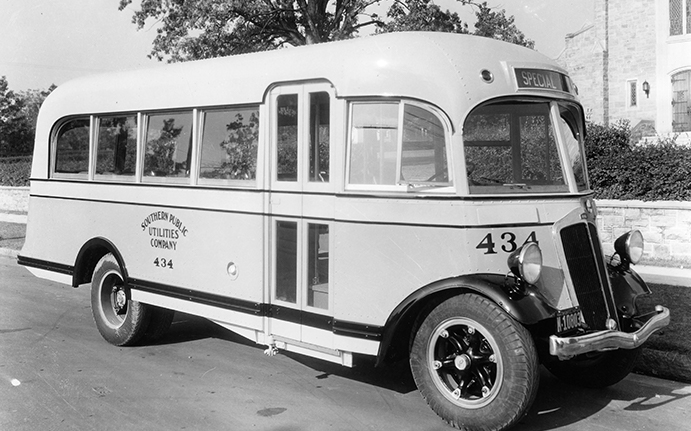
1934 – Perley A. Thomas Car Works moved into transit buses, with a commission from the Duke Power Company for a fleet of ten
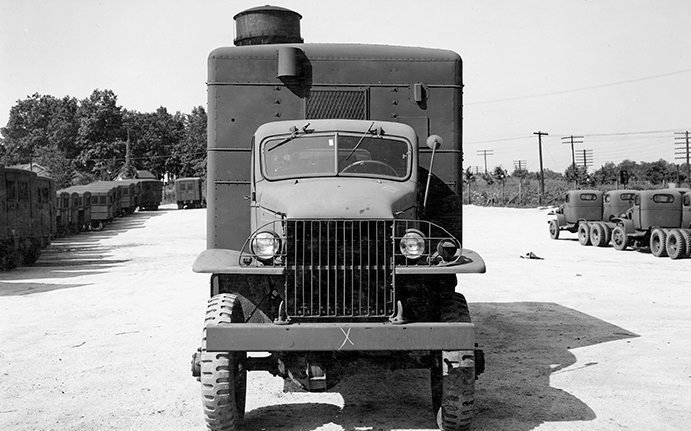
1944 – During WW II, Thomas received several military contracts, and a Thomas ST6 served as General Patton’s personal quarters
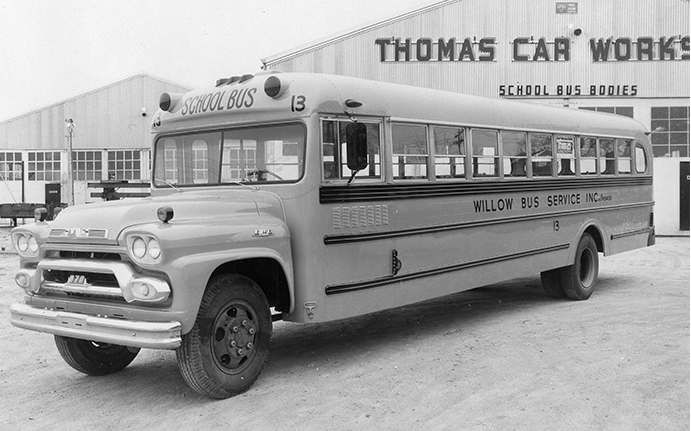
1950 – Thomas offered conventional body styles that could be mounted on the chassis of major auto brands such as Ford and Dodge
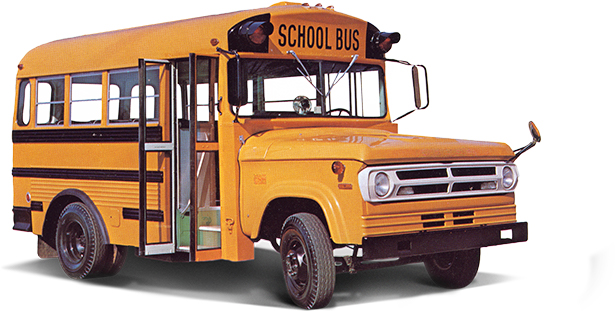
1972 – The debut of the Thomas Mighty Mite, a smaller-scale bus offering the same level of safety as the full-size Saf-T-Liner®
